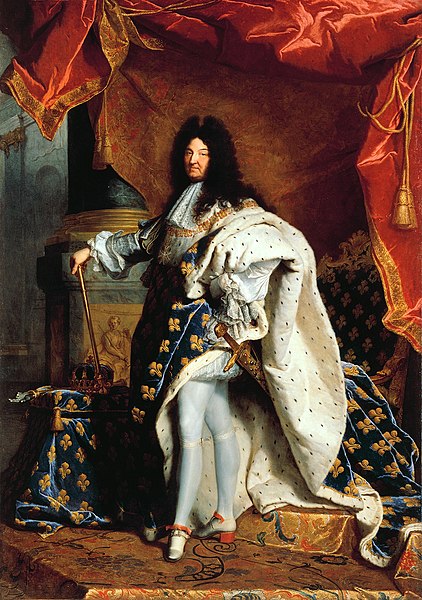Louis XIV, also known as Louis the Great or the Sun King, was King of France from 1643 until his death in 1715. His verified reign of 72 years and 110 days is the longest of any sovereign. Although Louis XIV's France was emblematic of the Age of Absolutism in Europe, the King surrounded himself with a variety of significant political, military, and cultural figures, such as Bossuet, Colbert, Louvois, Le Brun, Le Nôtre, Lully, Mazarin, Molière, Racine, Turenne, Condé, and Vauban.
Portrait of Louis XIV, 1701
Louis XIV as a young child, unknown painter
Baptismal certificate, 1638
Louis XIV in 1643, just before becoming king, by Claude Deruet
Absolutism (European history)
Absolutism or the Age of Absolutism is a historiographical term used to describe a form of monarchical power that is unrestrained by all other institutions, such as churches, legislatures, or social elites. The term 'absolutism' is typically used in conjunction with some European monarchs during the transition from feudalism to capitalism, and monarchs described as absolute can especially be found in the 16th century through the 19th century. Absolutism is characterized by the ending of feudal partitioning, consolidation of power with the monarch, rise of state power, unification of the state laws, and a decrease in the influence of the church and the nobility.
King Louis XIV of France, often considered by historians as an archetype of absolutism
Image: Frederick II and eagle
Image: After Hans Holbein the Younger Portrait of Henry VIII Google Art Project
Image: Titian Portrait of Charles V Seated WGA22964







